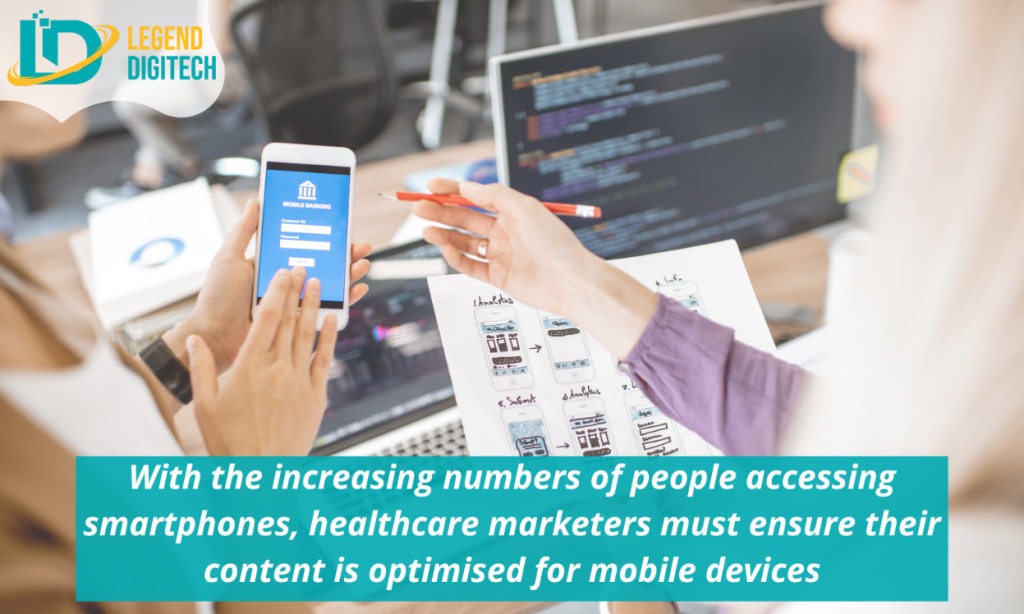The healthcare industry has significantly transformed in the recent decade due to the increasing adoption of digital technology—one of the most critical areas affected by this shift in healthcare marketing. As more people turn to the internet to find information about healthcare providers, treatments, and products, healthcare marketers must adapt their tactics to stay relevant and competitive. But first, we must understand how digital transformation has changed our lives.
Revolutionising Our Lives: Digital Era Milestones
The digital era, the Information Age, has revolutionised our lives and work. It has transformed the world into a global village where people and businesses can connect and communicate in real time. The evolution of the digital era has been remarkable and has been characterised by several key milestones that have shaped how we interact with technology.
The earliest form of digital technology was the computer. The first computer, the Electronic Numerical Integrator and Computer (ENIAC) was created in 1945. It was a massive machine that weighed 27 tons and was powered by over 17,000 vacuum tubes. Despite its size, the ENIAC was ground-breaking as it introduced the concept of digital computing. Regardless of ENIAC’s size, it was ground-breaking as it introduced the concept of digital computing.
In the 1960s, the development of the Integrated Circuit (IC) paved the way for creating of smaller, more powerful computers. The IC was a small chip that contained thousands of transistors, which allowed for the miniaturisation of electronic devices. This led to the creation of the first personal computer, the Altair 8800, in 1974. The Altair 8800 was a kit computer that the user could assemble, and it kick-started the personal computer revolution.
The 1980s saw the rise of the graphical user interface (GUI), which made computers more user-friendly. Apple first introduced the GUI as the Macintosh computer in 1984. The Macintosh featured a mouse-driven interface and was the first computer to use icons to represent programs and files.
The 1990s saw the emergence of the World Wide Web (WWW), which allowed for creating websites and sharing information across the internet. Tim Berners-Lee invented the WWW in 1989, and it was first made available to the public in 1991. The WWW enabled people to access information from anywhere in the world and transformed how we communicate and do business.
The 2000s saw the rise of social media, allowing people to connect and share information in real-time. The initial social media platform, Six Degrees, was created in 1997. However, with the emergence of Facebook in 2004, social media became mainstream. Facebook quickly became the most popular social media platform, and it now has over 2.8 billion monthly active users.
Today, we are in the midst of the Fourth Industrial Revolution, characterised by the integration of digital technologies such as Artificial Intelligence (AI), the Internet of Things (IoT), and blockchain into our daily lives. AI automates tasks and improves efficiency, while the IoT allows for creating smart homes and cities. Blockchain is being used to create secure and transparent digital transactions.

In conclusion, the evolution of the digital era has been remarkable, and it has transformed how we live and work. From the creation of the first computer to the emergence of social media and the Fourth Industrial Revolution, digital technology has changed the world in ways that were once unimaginable. As we move forward, it is clear that digital technology will continue to shape our world, and it is up to us to alter and embrace these changes.
Building Trust in Healthcare Digital Marketing
One of the critical challenges of healthcare digital marketing in the digital era is building trust and credibility with patients. With so much online information, patients are increasingly sceptical of marketing messages that sound too promotional or biased. Healthcare marketers must therefore focus on creating informative, accurate, and unbiased content. This can be done by providing valuable educational resources like blogs, videos, and infographics that help patients understand their healthcare options and make informed decisions.
Another important consideration for healthcare marketers in the digital era is the need to be visible and accessible across various digital channels. This includes social media platforms, search engines, and online directories.
Healthcare providers must optimise their digital presence to ensure that they appear prominently in search results and that their social media profiles are active and engaging. They must also be available to respond to patient inquiries and feedback promptly and professionally.
The rise of mobile technology has also had a significant impact on healthcare marketing. With more people accessing the internet on their smartphones and tablets, healthcare marketers must ensure their content is optimised for mobile devices. This includes how to make your website mobile friendly so that websites and other digital assets are easily navigated and read on smaller screens. It also means developing mobile apps and other tools that make it easier for patients to access healthcare information and services on the go. With the increasing numbers of people accessing smartphones, healthcare marketers must ensure their content is optimised for mobile devices.

In addition to these technical considerations, healthcare marketers stay abreast of the latest trends and best practices in digital marketing. This requires ongoing education, training, and a willingness to experiment with new strategies and techniques. For example, healthcare providers may need to invest in paid search advertising or social media advertising to reach new audiences and enhance brand awareness.
Adapting healthcare marketing to the digital era requires a holistic approach that considers patients’ unique needs and preferences. Healthcare marketers can remain relevant and competitive in a rapidly changing landscape by building trust, optimising their digital presence, and staying up-to-date with the latest trends and best practices.
Doctor-patient involvement in healthcare marketing has continuously changed. Using search engines, creating targeted outreach with outstanding multi-media content, interacting with patients on social media, and using campaign data analytics all help swiftly boost patient engagement and loyalty. Legend DigiTech is, therefore, equipped to enhance your healthcare practice with our expert team and proven track record to get the results you’re looking for.







